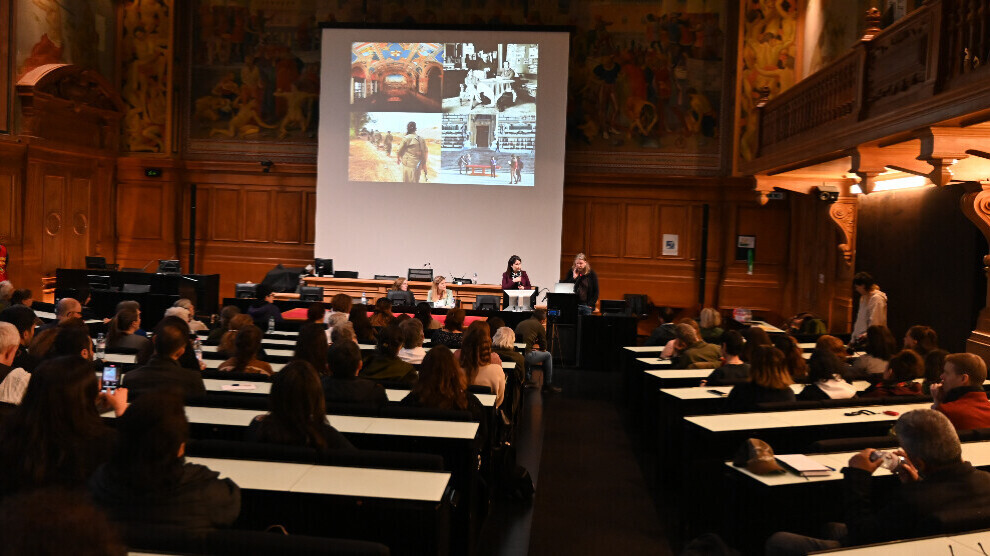"Jin Jiyan Azadî" panel in Lausanne
A panel titled “Jin Jiyan Azadî” took place in the Palais de Rumine as part of the series of events dedicated to the 100th anniversary of the Treaty of Lausanne.
A panel titled “Jin Jiyan Azadî” took place in the Palais de Rumine as part of the series of events dedicated to the 100th anniversary of the Treaty of Lausanne.

Activities to mark the 100th anniversary of the Treaty of Lausanne continue in Switzerland. The 1923 treaty established the four-part division of Kurdistan. The agreement was signed in the Palais de Rumine, where a panel was held this week. The meeting was called "Lausanne 1923: Where were the Kurds?". A "Jin Jiyan Azadî" event was held at the same location this week. Speakers were Elif Kaya from the Jineolojî Committee and art historian Matthieu Jaccard.
The event started with a performance by Mîrkan Deniz. Sevgi Koyuncu then went through the series of events "Lausanne 2023", which will continue with an exhibition between 28 April and 19May.
In his speech, Matthieu Jaccard recalled the Armenian Genocide and the international day of remembrance on 24 April, saying that genocide and exploitation have taken place at every time in human history and peoples in the Middle East and Asia are still threatened by them. The danger of genocide was directed against the Kurds through the Treaty of Lausanne.
Elif Kaya first introduced Jineolojî as a science and said that the Kurds have preserved their language and traditions through their struggle despite the threat of genocide of the past one hundred years. Kaya underlined that the Rojava Revolution was based on the freedom paradigm presented by Abdullah Öcalan and said: "Despite the massacres that have taken place, the Kurds have stood up and they have managed to protect their identity, language and traditions and to create a women's revolution. The 'Jin Jiyan Azadî' philosophy originated in Rojava and today has become a common statement in Rojhilat [Eastern Kurdistan], Iran and throughout the Middle East. The basis for this is Abdullah Öcalan’s philosophy of freedom."